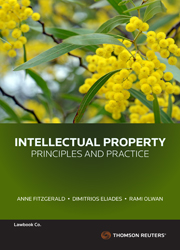Professor Anthony Gray of the USQ School of Law and Justice has published a research note titled 'Proportionality in Australian Constitutional Law: Next Stop Section 116?' The note appears in Volume 1 of the Australian Journal of Law and Religion. Here is the abstract:
Publications, colloquia, and more at the University of Southern Queensland School of Law and Justice.
Monday, October 24, 2022
Thursday, October 13, 2022
Hemming on ‘Why the Jury in Pell v The Queen Must Have Had a Doubt and the High Court was Right to Quash the Guilty Verdicts’
Associate Professor Andrew Hemming of the University of Southern Queensland School of Law and Justice has published a new article titled ‘Why the Jury in Pell v The Queen Must Have Had a Doubt and the
High Court was Right to Quash the Guilty Verdicts’. The article appears in Volume 1 of the Australian Journal of Law and Religion. Here is the abstract:
"In the aftermath of the High Court’s decision in Pell v The Queen to quash the guilty verdicts and enter verdicts of acquittal in their place, there has been considerable public discussion and academic commentary on the respective roles of the jury and appellate courts, with particular focus on the jury as the tribunal of fact. Pell v The Queen was a high-profile case involving sexual assault charges against a Cardinal of the Roman Catholic Church, when just a year earlier the Royal Commission into Institutional Responses to Child Sexual Abuse had published its final report which was dominated by abuses perpetrated in the Roman Catholic Church. This article considers the test for the unreasonableness ground of appeal set out by the High Court in M v The Queen, which is reflected in s 276(1)(a) of the Criminal Procedure Act 2009 (Vic), whether ‘upon the whole of the evidence it was open to the jury to be satisfied beyond reasonable doubt that the accused was guilty’; and concludes that the High Court was correct to adopt Weinberg JA’s dissenting judgment in the Victorian Court of Appeal which in the author’s view was compelling."
Monday, October 10, 2022
Olwan on 'Intellectual Property: Principles and Practice'

"Intellectual Property: Principles and Practice provides a succinct, principles-based account of all the forms of intellectual property recognised in Australian law: copyright, patents, plant breeder’s rights, trade marks, designs and confidential information. It explains the rationale, key concepts and principles of each form of intellectual property in a style which is readily accessible to broad readership."
Wednesday, October 5, 2022
Gray on 'Reform to the Law of Consent: A Tale of Two States'
Professor Anthony Gray of the University of Southern Queensland School of Law and Justice has published a new article titled 'Reform to the Law of Consent: A Tale of Two States' The article appears in Volume 31 of the Journal of Judicial Administration. Here is the abstract:
"This article considers reform in New South Wales and Queensland regarding consent in the context of sexual offences. While New South Wales has effectively adopted an affirmative consent model, Queensland has (so far) stopped short of making this reform, while making changes in this general direction. It is argued here that Queensland should adopt the affirmative consent model."
Monday, October 3, 2022
Collins on 'Military Operation and Engagement in the Domestic Jurisdiction: Comparative Call-out Laws'
Professor Pauline Collins of the University of Southern Queensland School of Law and Justice has co-edited (with Rosalie Arcala Hall) a new book titled Military Operation and Engagement in the Domestic Jurisdiction: Comparative Call-out Laws (Brill, 2022). Here is the publisher's description:
"This book scrutinises the call-out of the military in the domestic domain in a selection of 13 countries. Nation-states vary in their political-legal structures and all have their own history in the use of military personnel in domestic matters. Three recent events have resulted in increased domestic military deployment and have been experienced in most countries. In the security domain, there is the rise of Islamic State and increasing acts of terrorism, resulting in military involvement in policing. The other two have been increased humanitarian needs: the COVID-19 pandemic and the widespread flooding and fires following the changes in climate. These have brought increasing military activity domestically, even in established democracies. This comparative analysis incorporates historical developments and provides a rich multidisciplinary approach from political and social scientists to lawyers and military personnel."
In addition to co-writing the book's preface, Collins also contributed one of the chapters: 'Calling Out Defence Personnel in Civilian Security Matters in Australia'.
Subscribe to:
Comments (Atom)


